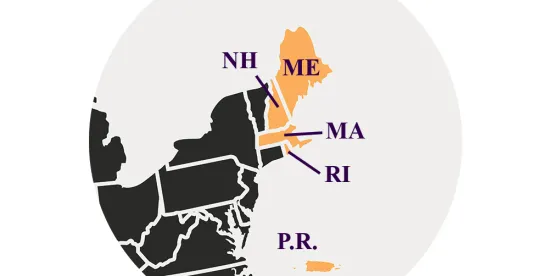Hey, TCPAWorld!
This week, the District of Massachusetts weighed in on whether 47 C.F.R. § 64.1200(d) provides a private right of action and construed a recent FCC rule discussing what constitutes a “reasonable time” to comply with a DNC request.
In Menin v. Star Markets Co., No. 23-cv-11918, 2024 WL 4123522 (D. Mass. Sept. 9, 2024), the Plaintiff received a text from Defendant Star Markets containing a “Weekly Ad.” The Plaintiff responded with a “STOP” instruction and received a text confirming her opt-out. Despite this, the Plaintiff continued to receive promotional texts. She issued another “STOP” request and received yet another confirmation text. Based on these facts, the Plaintiff sued Star Markets under Section 227(c)(5) of the TCPA and regulation 47 C.F.R. § 64.1200(d), alleging that it failed to institute proper DNC procedures before sending her the telemarketing messages at issue.
In response, Star Markets filed a motion to dismiss and a motion to stay discovery pending the Court’s resolution of its motion to dismiss. The Court addressed Star Markets’ arguments in turn.
First, Star Markets argued that TCPA does not supply a private right of action to the FCC’s implementing regulations.
Unlike the Sixth and Eleventh Circuits, which have found a private right of action, the Court noted that the First Circuit has not addressed this issue head-on. It has, however, “noted that a plaintiff asserted his ‘claims under § 227(c)(5) of the TCPA, which allows a private right of action for violations of the national do-not-call registry regulations’ and cited regulations 47 [C.F.R.] § 64.1200(c)-(d).” Id. at *6 n.3 (citing Jones v. Montachesetts Reg’l Transit Auth., No. 22-1569, 2023 WL 9233970, at *1 (1st Cir. Nov. 30, 2023)) (alteration added). Ultimately, the Court adopted “the majority rule” that 47 C.F.R. § 64.1200(d) is supplied with a private right of action by Section 227(c)(5) of the TCPA and denied Star Markets’ motion to dismiss on this ground. Id. at *2.
Though the First Circuit’s language in Jones is far from conclusive, it may hint or foreshadow the First Circuit’s position on this issue.
Second, Star Markets argued that even if there is a private right of action, Plaintiff failed to state a claim for violation of 47 C.F.R. § 64.1200(d).
To state a claim for a violation of Section 64.1200(d), a plaintiff must show that the telephone calls plaintiff received from the defendant were initiated before the defendant instituted procedures meeting the regulation’s “minimum standards.” 47 C.F.R. § 64.1200(d). These standards include written policies for maintaining DNC lists, honoring DNC requests within a “reasonable time” not to exceed 30 days, and training personnel accordingly. Id.
The Court found it plausible that Star Markets lacked proper written procedures and failed to train its employees. In reaching this conclusion, the Court explained that the Plaintiff’s “allegations concerning repeated text messages over the course of three weeks after twice opting out, combined with the existence of transmission reports [listing all outbound texts and opt-outs] and repeated failures to honor her opt-out requests” tipped the scales on both accounts. Id. at *3.
However, Star Markets argued that because its alleged messages to Plaintiff occurred within thirty days of Plaintiff’s stop request, they were compliant with the regulation. Defendant further argued that the FCC’s new rule (announced on March 5, 2024) amending the time to comply with DNC requests supported its argument for a thirty-day safe harbor. The rule states that opt-out requests must be honored “within a reasonable time from the date that the request is made, not to exceed 10 business days after receipt of the request.” Id. at *5 (quoting Strengthening the Ability of Consumers to Stop Robocalls, 89 Fed. Reg. 15756-01, 15758, 2024 WL 915454, at *1 (Mar. 5, 2024) (to be codified at 47 C.F.R. pt. 64)). Star Markets argued that this new rule acknowledged that the regulation, as stated, provides no specific time for honoring DNC requests and thereby reduces the window.
The Court disagreed with this, explaining that “the FCC recognized that opt-out requests can be processed ‘quickly’ and well short of thirty days.” Id. Specifically, the FCC provided that DNC requests “should be honored ‘as soon as practicable as a best practice.’” Id. Since the FCC has not stated how many days short of thirty is per se reasonable, the Court decided that whether a “reasonable time” passed is a question of fact.
Predictably, the Court then denied the Defendant’s motion to dismiss and denied its motion to stay as moot.
This view of a “reasonable time” being a question of fact will certainly make it much easier for plaintiffs to survive a motion to dismiss—at least within the District of Massachusetts. This is something to keep an eye on.




 />i
/>i

